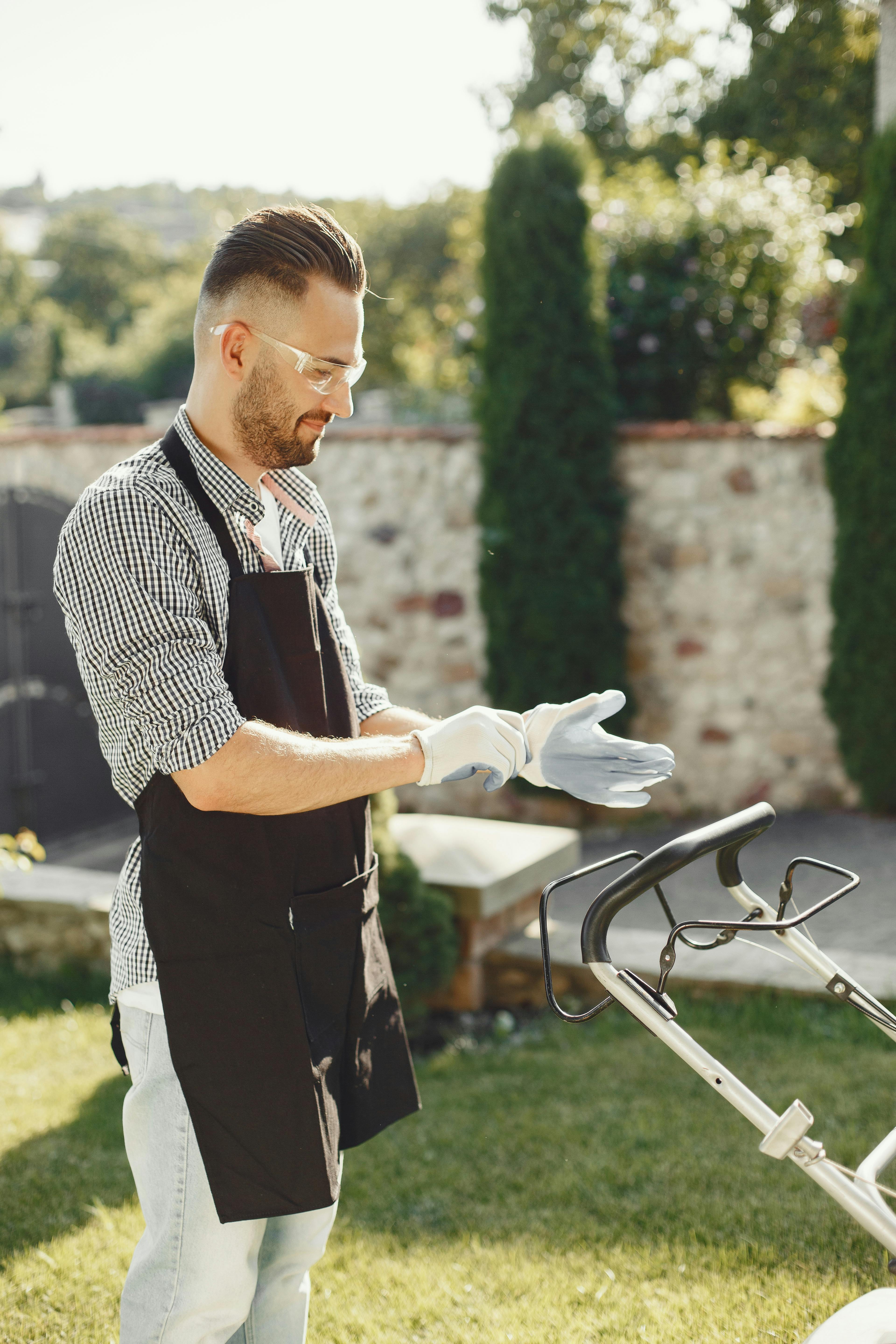Your Steps From Contract to Closing
Congratulations! You and the seller have reached a verbal agreement on the purchase of your new home. Now you are ready to sign the purchase agreement. What else do you need to do? Here we walk you through the process from contract to closing on your Dutch Home.

Your To-Do List After Your Bid Is Accepted
One particularly important detail you as buyer need to be aware of is that the agreement is not legally binding until the purchase contract is signed by both parties.
In fact, seller’s makelaars are required by law to present any other incoming bids at the same value or higher than your bid to the seller should they receive them before the purchase agreement is signed.
This means that the purchase contract is a ‘schriftelijkheidsvereiste’ document and that reaching an agreement is a different thing than having a written and signed purchase contract.
Naturally, that means it is good practice to sign the purchase contract as soon as possible after reaching a verbal agreement, usually a week after acceptance.

The Contract
Once you and the seller have agreed on the bid, the purchase contract must be made and signed. For this, your makelaar will need a bit of personal information from you as quickly as possible.
According to Dutch law (the Wet ter voorkoming van witwassen en financieren van terrorisme (Wwft), you will also need to verify where your money to purchase the house comes from. This is usually done through a ‘declaration of origin of funds,’ where you indicate whether you are borrowing or receiving money as a gift, from whom you are borrowing or receiving money as a gift, or whether you are using a part of your own money to pay the purchase price.
Personal Information Your Makelaar Needs ASAP
- Full first and last name(s)
- Date and place of birth
- Current address
- E-mail address and telephone number
- Marital status
- Any marital property arrangements, if applicable
- Copy of passport, driver’s license, or ID card
- Declaration of origin of funds to buy house

Closing Preparation Steps
Your responsibilities as a buyer really begin once you’ve signed the purchase contract but haven’t closed yet.
- Appoint a notary
- As part of the purchase contract, the notary is named where the closing and handing over of keys will take place. And as buyer, you get to choose the notary. Often, your makelaar will already have good connections with a notary and will be able to advise you on which notary to choose.
- Once you sign the purchase agreement, the notary takes over a number of steps for you.
- Appoint a translator
- In The Netherlands, it’s required by law that when one of the parties at closing has a foreign nationality, the closing is translated so that everyone understands the proceedings. 9 times out of 10 the language of translation will be English, but it can also be another language. When a sworn translator translates at closing, he or she also signs the closing documents, declaring they have translated everything said by the parties or notary.
- Most notaries have a network of sworn translators or work with a translation agency. To save on costs, you could also arrange a professional translator yourself. We at The Xpat Agent also have an arrangement with a trusted notary that when we refer you there, your fees for the translator are paid.
- Arrange a mortgage
- Once everyone has signed the purchase contract, the work of buying a home continues. Now is the time for you as buyer to arrange a mortgage with your mortgage lender of choice. If you’ve included a financial resolutive conditions dependent on being able to secure a mortgage, this is when that can come into play. Usually, you can arrange a mortgage within 6 to 8 weeks.
- Finish the 3 day cooling off period
- Whilst you feel like you might need to jump into action as soon as your offer is accepted and you have the notary, appraisal, and mortgage on your mind, you also have a 3-day cooling off period to be aware of. In The Netherlands, after a buyer & seller sign a deed of sale on a home, the buyer has 3 days to reconsider and cancel their decision.
- If, within those 3 days, the buyer no longer wants to buy the house, they can cancel the deed of sale. The cancellation period must contain two working days, and the buyer does not have to give a reason or pay compensation.

Moving Preparation
Not only do you have responsibilities for buying the house, but you are also facing a move! Here are a number of moving related tasks you might also need to complete:
- Set up utilities
- There are many options to choose from when setting up your utilities, insurance, or relocation in The Netherlands. And sometimes that can seem overwhelming. If you choose to, you can work with a company who sets up utilities, insurances, and relocation for expats. Companies like Easy Nuts or Utility Direct help consumers simplify the moving process.
- Register at the gemeente
- When you arrived in The Netherlands, you registered with the local municipality (gemeente) where you were living. After moving, you need to register with your new municipality within 5 days, or they can fine you up to €325.
- Fortunately, it’s not difficult to register your new address, either within the same municipality or a new one. You can do it in person at the municipality, or online at the website of your new municipality. If you change your address online, you will use your DigID to do so. If you are moving within the same municipality, you can often update your address up to 30 days before your move.
- Once you’ve registered your new address, you do not have to sign out of your old municipality. That will be automatically updated for you.
- Hire movers
- Ask friends and neighbours for recommendations for moving companies that they trust. You can also make use of sources like the Holland Expat Center South, I Am Expat, or Facebook groups to find recommendations.
- Make sure to book your moving date with the movers well in advance of your moving date to avoid disappointment.
- Or hire a moving van
- There are many opportunities to hire a busje, white van, or moving van to move your own belongings in the Eindhoven area, based on your moving needs. Make use of your search engine to find one that fits your needs, and don’t forget to schedule in advance of your moving date to guarantee availability.
- In some situations, you only need a category B driver’s license, but some of the trailers you will need a category E license.
- Cover yourself
- It’s a well-known fact- insurance is immensely popular in The Netherlands! Along with health insurance, and car insurance if you have a car, most mortgage companies require home buyers to purchase home insurance. It is designed to protect you if your home gets damaged.
- Home insurance can be split into three parts:
- Contents insurance (inboedelverzekering) protects all movable parts in your home, including your furniture, clothing, and equipment.
- Building insurance (opstalverzekering) also called homeowner’s insurance, protects your home as a building with all the fixed structure like walls, floors, roof & ceiling.
- Liability insurance (aansprakelijkheidsverzekering) insures against costs incurred by others if they hurt themselves or damage their property in your home.
- Another type of insurance you might want to consider would be the legal assistance insurance, or rechtsbijstandverzekering. This insurance provides legal advice and covering the legal costs of a dispute, regardless of whether the case is brought against or begun by the policy holder.

A word about wills when you’re at the notary
When buying a home and considering all the Dutch insurances available surrounding it, you may feel that it is also time to make or update your will. If considering it, please know a few international factors influence how it works. In The Netherlands, you pay inheritance tax on anything you receive. Dutch law applies to Dutch nationals currently living in The Netherlands as well as foreign nationals who’ve lived at least five years in The Netherlands before their death.
That said, recently EU law mandated that EU citizens living abroad in most countries can now choose if the law of their home country or the law of their residence country applies. If an international dies without making a will or an official declaration of the law they want to apply, then the law of the land where they’ve lived the last five years applies.
In The Netherlands, if a person dies without a will, then that person’s inheritance is split equally between the remaining spouse and children. If there are no spouse and children, the inheritance is split between parents and siblings. Please note, that if a partner is not married to the deceased or does not have a registered partnership, that person is not considered an heir and is barely protected by law.
A will is only legal in The Netherlands when written up by a notary. Always ask your notary for the latest information regarding wills and testaments before making changes.

The seller’s responsibilities leading up to closing
In the time between signing the contract & closing, the seller has responsibilities too. They must take care of the home. They are legally obligated to deliver the home in the same condition as it was on the day the buyer signed the purchase contract.
So, if something breaks in the home in the period between signing the agreement and the date of transfer, the seller must repair it. They must also ensure that minor problems are repaired so that they do not get worse. For example, a small leak can turn into a big leak if it’s not quickly repaired.
It is also common for the seller to give the buyer the opportunity to have that appraisal carried out that he needs for his mortgage.
It is good practice for the you as buyer to be able to enter the home occasionally after consulting with the seller. For example, you need the opportunity to have that appraisal carried out for the mortgage.
You may also want to measure the kitchen if you want to install a new one, or plan with a contractor for the jobs you want to have carried out. This is of course after consulting with the seller.
Final Steps to Homeownership
Congratulations on reaching this significant milestone! With the verbal agreement in place, the focus now shifts to finalizing the purchase contract and preparing for closing. By staying organized and proactive—whether it’s promptly providing necessary documentation, arranging a mortgage, or planning your move—you’ll set yourself up for a smooth transition to homeownership.
Remember, buying a home is as much about preparation as it is about celebration. Stay in close communication with your makelaar and notary, keep track of deadlines, and take advantage of the resources available to you.
Soon, you’ll have the keys in hand and a new chapter in your life to enjoy. Best of luck as you take these final steps toward making your dream home a reality!

 How Does the Bidding Process Work?
How Does the Bidding Process Work? How Do I Make My Bid Stand Out?
How Do I Make My Bid Stand Out? Buying a Home in Eindhoven
Buying a Home in Eindhoven